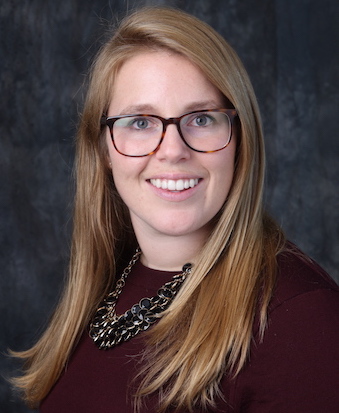We sat down with Elizabeth Zulick, PhD, MPH, assistant teaching professor and faculty director for Northeastern University’s healthcare and biotechnology programs, to learn more about her work and research interests.
Before coming to work in Northeastern’s College of Professional Studies in 2016, Zulick was a post-doctoral fellow in the Center for Regenerative Medicine at Boston University. She also taught at Boston University’s Metropolitan College and College of Arts and Sciences, as well as the University of Massachusetts.
Notably, Zulick has received an Environmental Protection Agency STAR Fellowship award to study the effects of environmental exposures on breast cancer. She has been published in a number of journals (Stem Cells, BMC Biology, Molecular Cancer Research, and Molecular Neurodegeneration) and regularly presents at the Society of Toxicology’s annual meeting. When she’s not working, Zulick loves to bake. She enjoys making wedding cakes, wedding shower cakes, baby shower cakes, etc. for friends and family.
Here are some of the highlights from our conversation:
Q: What is your specialty within your discipline?
A: I come from a traditional molecular biology background—my dissertation focused on cancer biology and my post-doc focused on induced pluripotent stem cells and hematopoiesis. Now, a lot of my research efforts are focused on STEM education and increasing under-represented minorities and women participation in STEM fields.
Q: What makes this work meaningful to you?
A: I believe that EVERY PERSON deserves access to education, and I am working hard to bring that statement to life! When I see a student come to Northeastern while working a job earning minimum wage, and then graduate and get a job making a living that can support their family, there is no better feeling.
Q: Tell me more about your career before coming to NU.
A: Before Northeastern, I was at Boston University’s Center for Regenerative Medicine (CReM), studying how the aryl hydrocarbon receptor affects hematopoiesis and the development of hematopoietic stem cells. At the same time, I was teaching a variety of courses at Boston University, in both their Metropolitan College and College of Arts and Sciences.
Q: What attracted you to Northeastern University and CPS?
A: I loved the mission of the College of Professional Studies, and its goal to create pathways for students throughout their whole lives. I believe education can truly change the trajectory of a person’s life, and CPS make education accessible for a diverse range of students. I was also attracted to Northeastern’s focus on experiential learning, and the model that students will actually have hands-on experience in a field before entering the workforce. It seems so simple, but Northeastern has dialed in this learning experience and is the leader in this space.
Q: What do you consider your biggest research/industry accomplishment(s) thus far?
A: This past year, we were awarded a $4.4 million grant to support students on their path from an associate degree to a Bachelor of Science to a Master of Science in Biotechnology. This grant was submitted in partnership with Middlesex Community College. We can give scholarship to students, pay for textbooks, laptops, transportation, and more. It is an amazing program! We have already offered scholarships to over 50 students and are hoping to double that [in 2019].
Q: What courses are you teaching in the coming year? Can you describe one or two in more depth?
A: I’ll be teaching Cell Biology and a Biotechnology Senior Capstone. The capstone course is where students put all their learning into practice. All students partake in an XN project, and write a grant proposal aligned with that work, further exploring a novel line of research. Also, we bring in a variety of guest speakers from industry to expose students to different career paths. It is always a fun course!
Q: Are you involved in experiential learning opportunities for your students? Can you share more about them?
A: Students in both my Cell Biology and Capstone courses partake in XN projects that are curated to the biology/biotechnology/healthcare field. These are short term, virtual internships that align with a student’s personal career goals. These can be done in teams or individually by students. This is a great, low-stakes way for a student to explore a new area of their discipline, and make new, professional contacts.
Q: What are you reading right now?
A: I am currently reading Becoming by Michelle Obama. Better late than never!
Q: What’s one industry-related book or publication that has influenced you?
A: The Immortal Life of Henrietta Lacks was a casual read which really made me think about the work that I am doing and the wide-reaching effects. In the field, staying up to date with the major journals (e.g., Cell, Nature) is a must, but also looking at what trends we are seeing within industry through publications such as the Parenteral Drug Association (PDA), International Society for Pharmaceutical Engineering (ISPE), Regulatory Affairs Professional Society (RAPS), and Mass Bio is always important.
Q: What advice would you offer to prospective graduate students interested in the biotechnology program?
A: When you think of the biotechnology field, there are countless different types of careers you could have within this space—it is not all research and development! It is important to expose yourself to other areas: biomanufacturing, quality, regulatory, marketing, operations, etc.
Connect with Dr. Zulick: LinkedIn | Twitter
To learn more about the esteemed faculty of Northeastern’s College of Professional Studies, visit https://cps.northeastern.edu/academics/faculty-directory/.
